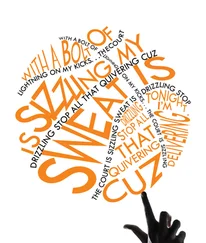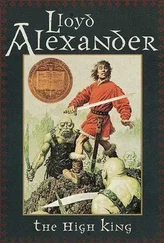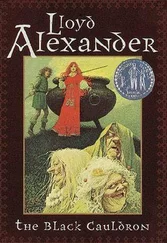“You seem to attract trouble,” the Colonel said. The other officer scribbled on his paper.
“What do you mean?” I asked.
“Tonight you saved the Führer’s life, but this is not the first time you’ve encountered poisons.” The other officer returned with an ashtray and stood by his superior. The Colonel withdrew a pack of cigarettes from his jacket and lit up. He threw the match into the ashtray and exhaled a long stream of smoke.
“The Führer does not like his officers to smoke,” I said.
The Colonel smiled with smug conviction. “You’re very assured for a servant.”
I found his insult childish. “It’s true I’m in service to the Führer. If you wish to classify my position as a servant to the Führer that is your concern.”
He motioned to the officer who was writing. The man withdrew a file from his clipboard and handed it to the Colonel. He placed his cigarette in the ashtray and the smoke rose in white circles until it was sucked away in thin streaks by the fire’s draft. He read from the file: “You were dormitory mates with Ursula Thalberg, who attempted to kill the Führer with cyanide; you were sickened by a cook at the Wolf’s Lair as a test of your abilities; you discovered poison in the food at the Wolf’s Lair as it was being prepared for the Führer. That led to the dismissal of the cook who tested you.” He put the file on the table. “And now tonight.” The Colonel blinked and took another puff on his cigarette. The SS officer who was writing looked at me for my reply.
I chose to focus on the Colonel. “You’re reciting nothing but the hazards of my job. I’m very good at what I do. Ask Cook.”
“Do you have access to poisons?”
I leaned forward and addressed him squarely. “Everyone in the kitchen has access to poisons, or knows where they are. If you are implicating me, you might as well arrest the whole kitchen staff.”
He laughed. “Do not tempt me, Fräulein. Sometimes nothing clears the air like a good housecleaning.” He pointed to me. “Please stand up.”
I was shocked by his order. “Why?”
“Do it.”
I shrugged and stood as the three men in the room watched me like I was a prisoner ready to be stripped. Another SS officer, this one a woman, entered the door to the Great Hall. She seemed somewhat familiar, but I had not met her. After all, the Führer was surrounded by nearly two thousand people at his various headquarters. She circled me, stopped and stood stiffly in front of me. Her eyes were unmoving; no hint of emotion showed in her face.
“Search her,” the Colonel ordered.
The woman came forward without a word and placed her hands on my shoulders and then moved her fingers down to my breasts. She squeezed them through the fabric and then moved her hands lower, across my genitals, until she finished her job at my shoes. She ordered me to take them off and then turned me around and completed a similar hand search down my back. She even examined my Party pin. I was glad I had given the poison ring to Karl, but I worried whether he was able to hide it in time.
“Nothing,” the woman said brusquely after she had completed her task.
I turned to the Colonel, my cheeks flushed with anger. “See? You shouldn’t have been concerned about me.”
“I am not convinced.” He took a final puff on his cigarette and then rubbed it out in the ashtray. “Be aware that you and the kitchen staff are being watched. We will find the perpetrator of these crimes.” He pointed a thin finger at me. “The criminal will be punished.”
“May I leave now?” I said, still angered by his implication. “I’m tasting the Führer’s dinner. I have work to do.”
His mouth curled into a haughty smirk. “Go about your business. I have the Reich’s business to conduct.”
I took one last look at the Great Hall as I shut the door. The three men and the woman were looking at me as if they knew what Karl and I had planned for Eva’s tea party. The stares coming from their eyes shook me. Darkness had fallen and the extraordinary picture window on the north wall was black as the night, suiting my mood. Again, I felt helpless, under the crush of Hitler’s hand and the scrutiny of his forces.
* * *
Karl and I didn’t see each other until the next morning. We walked down the drive at the Berghof, then wound our way up the hill on a path that had been cleared through the deep snow toward Göring’s residence. At one point we stepped off onto the short ski trails cut by Eva and her friends the day before. No one was out. The clouds had scattered, but the temperature was bitter under the hard blue sky.
“I was worried,” I said to him. We clung to each other as we tramped through the snow. “I was afraid you’d get caught with the ring.”
“I dropped it in my underwear,” he said. “I thought the SS would stop short of putting their hands down my pants. I don’t know what I would’ve done if the Colonel had asked me to strip. He could have ordered me to.”
I couldn’t help but laugh, although the circumstances weren’t funny. “The woman who searched me certainly wasn’t shy. She searched almost every crevice.”
Karl nodded. “Yes, I know of her. She’s a beast and not to be fooled with. You are lucky she didn’t order you to take your dress off. I’ve heard—never through firsthand experience—that some resistance operators hide contraband where it can’t be seen. It can only be found by probing fingers.”
I shook my head. “Imagine that those of us who want to live freely must resort to such tactics.”
Karl stopped and turned to me. We stood on a slope, half in sunlight, half in blue shadow. The frosty plumes of our breaths mixed as one and then disappeared into the air. Karl kissed me and then said, “What’s the old saying? ‘All’s fair in love and war’? We do what we must, no matter the price.” He guided my head toward his shoulder.
“Nineteen forty-four will be here soon,” I said. “Surely we can celebrate something.”
He kissed me again. This time his lips lingered on mine and my heart stirred with longing. It had been several weeks since we’d made love.
“Yes,” he said with determination. “We can celebrate our union and pray that this year the Reich will come to an end.”
I put my arms around his neck and pulled him close. “I hope you’re right. Germany is in need of good news.”
We stomped up the snowy hillside until we were in the blinding sun. Instead of continuing toward Göring’s house, we turned east toward the SS barracks. As we neared, Karl slowed. “Listen.”
A faint melody drifted in the air, men’s voices carried on the wind. I recognized the tune, one I had known from Christmases past, in happier times when Berlin was not shattered by bombs and death had not gripped the land. It was “O Tannenbaum,” which my father had sung to me many times when I was a child. I remembered the silent nights of Christmas when all was calm and bright and there were no worries, no terrors of war, no horrors thrust upon the world. Times of peace were always brief, it seemed. Those times had ended and war, like a plague, enveloped us. I turned to Karl and sang softly to the melody. He cupped my face in his hands as the tears streamed from my eyes.
Christmas 1943 and New Year’s 1944 dragged by like the ticking of a sad clock. The monotony of winter set in with its mostly gray days, dismal afternoons and long nights. Since Karl and I had arrived at the Berghof we’d experienced little joy, none of the pleasures that anyone leading a normal life would have expected during the season. But when I asked myself what “normal” was, I could come up with no good answer. The world was being ripped apart. How could I complain when so many were suffering? Every time I wanted to cry or grouse about my circumstances, I thought of those with no food or shelter in the midst of winter, perhaps with nothing at all but a lean-to propped against the harsh, cold winds.
Читать дальше












